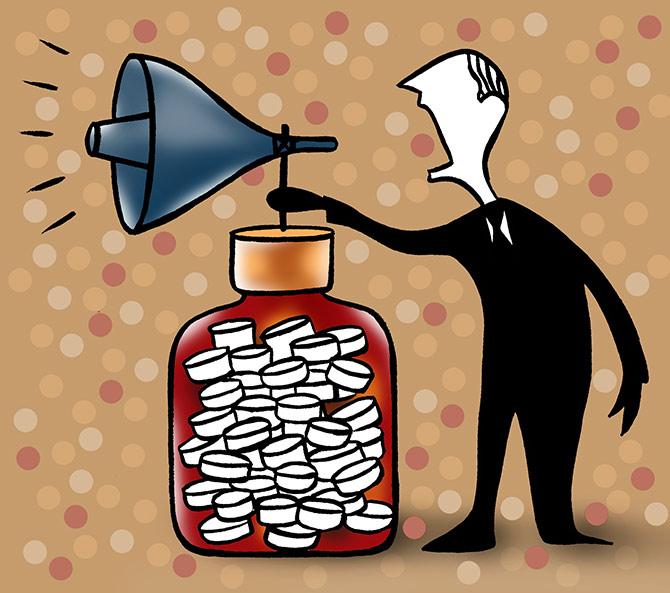Exports of 13 APIs - including paracetamol, tinidazole, metronidazole, vitamin B1, vitamin B6, vitamin B12, acyclovir, progesterone - along with formulations made from these APIs, would be restricted.

In the wake of the coronavirus (Covid-19) outbreak and supply disruptions from China, India on Tuesday “restricted” exports of 13 active pharmaceutical ingredients (APIs) and their formulations to ensure there was no shortage of key drugs.
The Directorate General of Foreign Trade (DGFT) said in a notification issued on Tuesday that exports of 13 APIs - including paracetamol, tinidazole (antibiotic), metronidazole (antibiotic), vitamin B1, vitamin B6, vitamin B12, acyclovir (anti-viral), progesterone (hormone) - along with formulations made from these APIs, would be restricted.
A senior government official said this was not an export ban.
“Exporters of these items would now have to take government approval before they can export.
"This will help to ensure that key drugs and their raw materials are not exported in large quantities from the country and there is no shortage here,” he said.
This is a temporary measure, he added.
“Supplies have started coming from China, but factories in Hubei province are still not functioning normally.
"Therefore, as a precautionary measure, the government has taken this step. We will lift the restrictions as soon the situation normalises,” the official said.
The managing director of a Mumbai-based mid-sized firm, which exports to the US, said the move would practically stall exports of these APIs and formulations.
“The DGFT notification refers to Schedule 2 of the ITC (HS) Export Policy, 2018, which deals with restricted items.
"To secure the necessary no objection certificate from the relevant departments would involve a four-stage process that takes at least 30-45 days to complete,” he said.
In such a situation, exports would nearly come to a standstill for a month or so.
Sudarshan Jain, secretary general of the Indian Pharmaceutical Alliance (IPA), said they were waiting for the finer details on how the restrictions would be imposed.
The department of pharmaceuticals (DoP) had formed a panel to examine the situation, and it had recommended restrictions be imposed on exports of 12 APIs.
Industry claimed that there was enough stock of raw material in the country to take care of immediate needs.
A Vaidheesh, managing director of GSK India, said the government was cautious given the uncertainty about supplies and the decision would help if there was a big outbreak here.
According to Pharmaceuticals Export Promotion Council (Pharmexcil) estimates, India is set to beat financial year 2018-19’s (FY19’s) export figures this year.
Between April and December, pharma exports clocked an 11.5 per cent growth over the corresponding period the previous year, and the December quarter was particularly buoyant (clocking a 14.6 per cent growth).
Total exports were likely to touch $22 billion in FY20, beating FY19’s $19.13 billion.
Exports account for about half the Indian pharma industry, estimated to be worth $39-40 billion.
Pharmexcil has requested relaxation in restrictions.
It said if restrictions are imposed with immediate effect it could result in financial losses for exporters.
Pharmexcil said failure to meet commitments could result in cancellation of entire orders or huge penalties.
Pharmexcil has requested DGFT to allow free export of drugs manufactured before the notification and those lying at ports.
It also requested DGFT consider the feasibility to exempt drugs manufactured for exports to be exempted.












 © 2025
© 2025